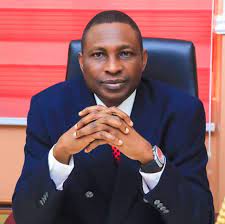The Economic and Financial Crimes Commission (EFCC), on Monday hailed the dismissal of the arbitrary $6.6 billion judgment against Nigeria, won by the Process & Industry Development, P&ID Ltd, over a failed 2010 deal to develop a gas processing plant in the country.
The commission recalled that a United Kingdom, UK Judge, Robin Knowles of the Business and Property Court in London, on Monday, October 23, 2023, ruled that the award were obtained by fraud and what has happened in the case is contrary to public policy.
EFCC Head of Media and Publicity, Dele Oyewale, disclosed that the EFCC had been embroiled in a legal tussle with Process & Industrial Developments over a $9 billion judgment against Nigeria, which has now risen to $10 billion.
He noted that P&ID claimed Nigeria violated terms of its agreement by failing to provide gas for the power plant it wants to build for the country.
According to the global firm, the alleged violation frustrated the construction of the Gas Project agreed to during the government of former president Umaru Yar’Adua and deprived P&ID the potential benefits expected from 20 years’ worth of gas supplies with “anticipated profits of $5 to $6 billion.”
The arbitral tribunal unanimously decided that the Nigerian government had repudiated the Gas Supply and Processing Agreement, GSPA, by failure to perform its obligations under the agreement and awarded P&ID $6.6 billion in 2017. That fine along with interest has now risen to $11.5billion.
An initial out-of-tribunal agreement for the payment of $850 million was reached by a previous administration and the disbursement was passed on to the administration of President Muhammad Buhari. Buhari, however, balked at the idea of paying the negotiated sum, set aside the settlement agreement and challenged the enforcement of the award before the English Commercial Court. But the London court added $2.4 billion in interest making it $9bn.
READ ALSO: PDP is deluded, in for another round of spectacular defeat – APC
The judge granted Nigeria’s request for a stay on any asset seizures while its legal challenge is pending, but ordered it to pay $200 million to the court within 60 days to ensure the stay. It also must pay some court costs to P&ID within 14 days. The decision of the court converted an arbitration award held by P&ID to a legal judgment, which would allow the British Virgin Islands-based firm to try to seize international assets.
Irked by the shadiness and hollowness of the claims of P&ID, Nigeria began investigating the company through the EFCC and found evidence of two bank transfers totalling $20,000 made by Dublin-based Industrial Consultants (International) Ltd. — part of the P&ID group of companies — to Grace Taiga, a Nigerian government lawyer who oversaw the award of the gas plant contract.
The EFCC, challenging the payments through its counsel, Bala Sanga, said, the payments, in 2017 and 2018, were made from an Industrial Consultants account at Allied Irish Banks and were purportedly for “medical costs”. Based on this new evidence, which the EFCC considered to be ‘seismic’, Nigeria filed fraud challenges against P&ID but the company has failed to respond to the charges. Trials of key suspects allegedly involved in the fraud are ongoing at various levels of court in Abuja.
Sanga, in some of his appearances in court for the EFCC, had pointed out that, “It is increasingly clear that this was a highly orchestrated scam”. The Commission had also pointed out that, P&ID’s lawyers have not been able to prove that it legitimately, and lawfully, secured a 20-year contract worth hundreds of millions of Naira.
“The company has yet to even demonstrate that they had the credentials in the first place to carry out such a complex arrangement, nor provide any evidence of tangible investment or land-holding. The award in question, which amounts to over eight times Nigeria’s national health budget, could be used for far more important, and genuine, public issues at the current time….”, it said.
The EFCC further argued that, “Nigeria does not even have the capacity to pay the judgment debt. Nigeria’s international assets, oil cargoes, P&ID were supposed to be seized, if Nigeria lost the appeal” , however, with the Monday judgment Nigerian assets are safe both at home and abroad.
Two British nationals, James Richard Nolan and Adam Quinn (at large), were, on October 18, 2021, re-arraigned before Justice D.U. Okorowo of the Federal High Court, Abuja for their alleged complicity in the controversial Process and Industrial Development gas processing contract, leading to the $9.6bn arbitral award to P&ID Limited by a United Kingdom commercial court.
The defendants, both directors of Goidel Resources Limited, a Designated Non-Financial Institution (DNFI) and ICIL Limited, were docked on a 32 count- charge bordering on money laundering. Their trial still continues.

 Entertainment5 days ago
Entertainment5 days ago
 Health1 week ago
Health1 week ago
 Health4 days ago
Health4 days ago
 Football1 week ago
Football1 week ago
 Football1 week ago
Football1 week ago
 Education6 days ago
Education6 days ago
 Crime4 days ago
Crime4 days ago
 Crime1 week ago
Crime1 week ago

